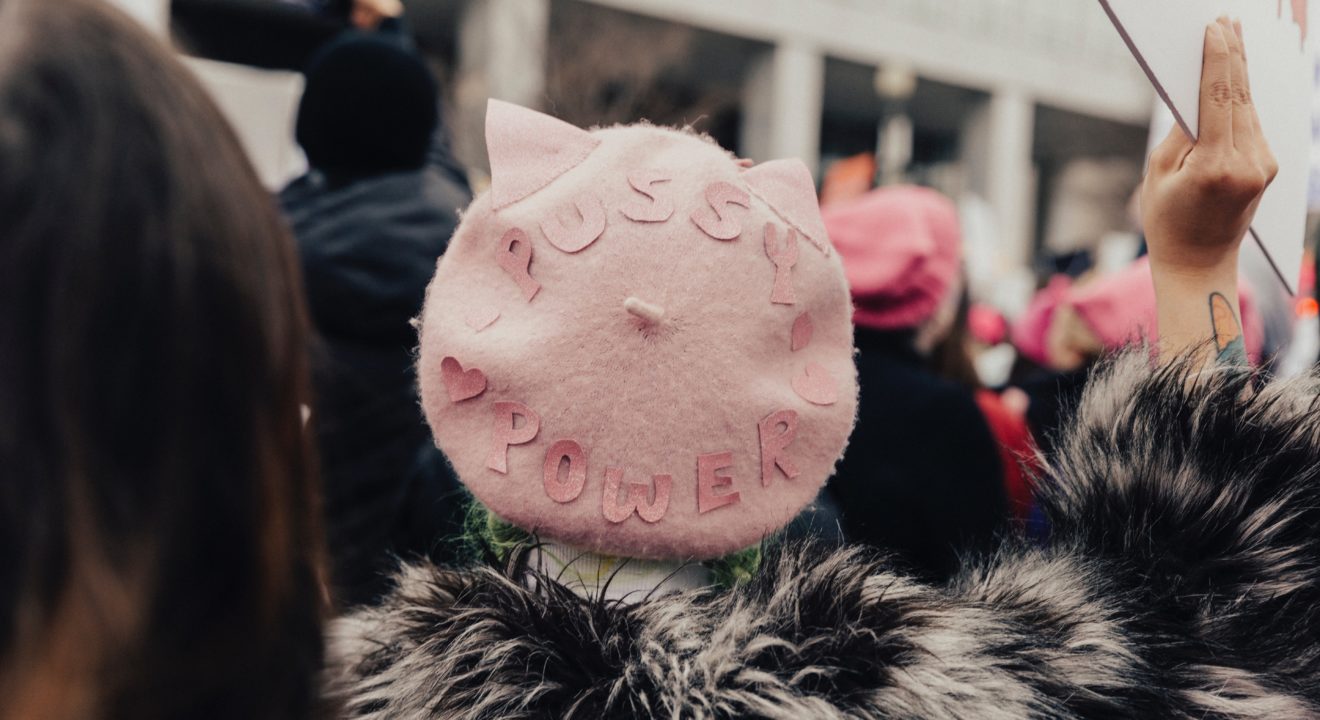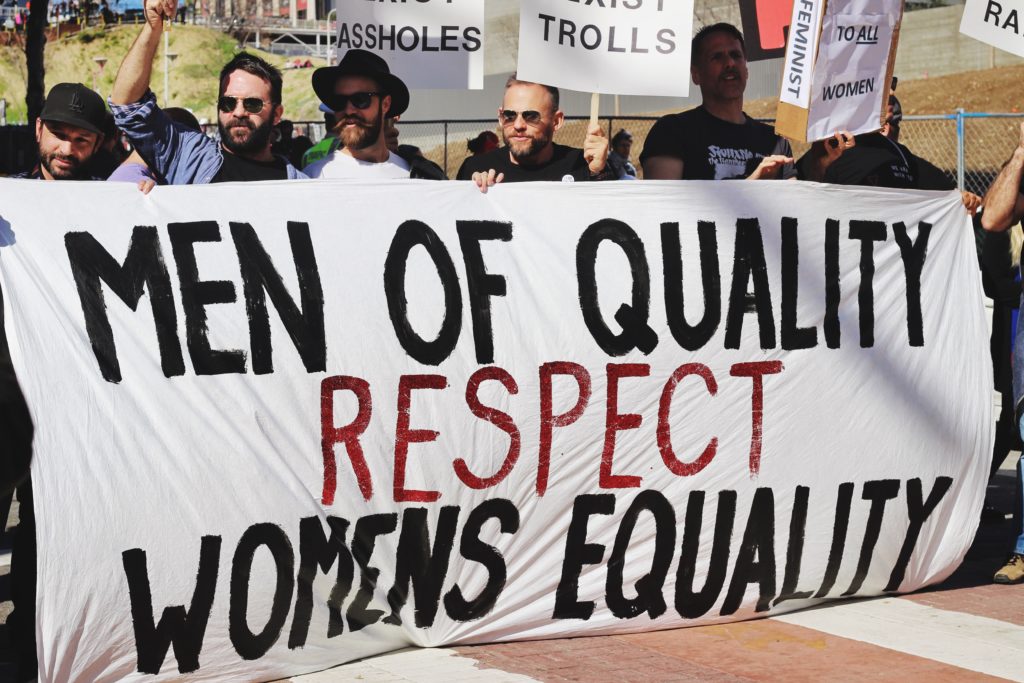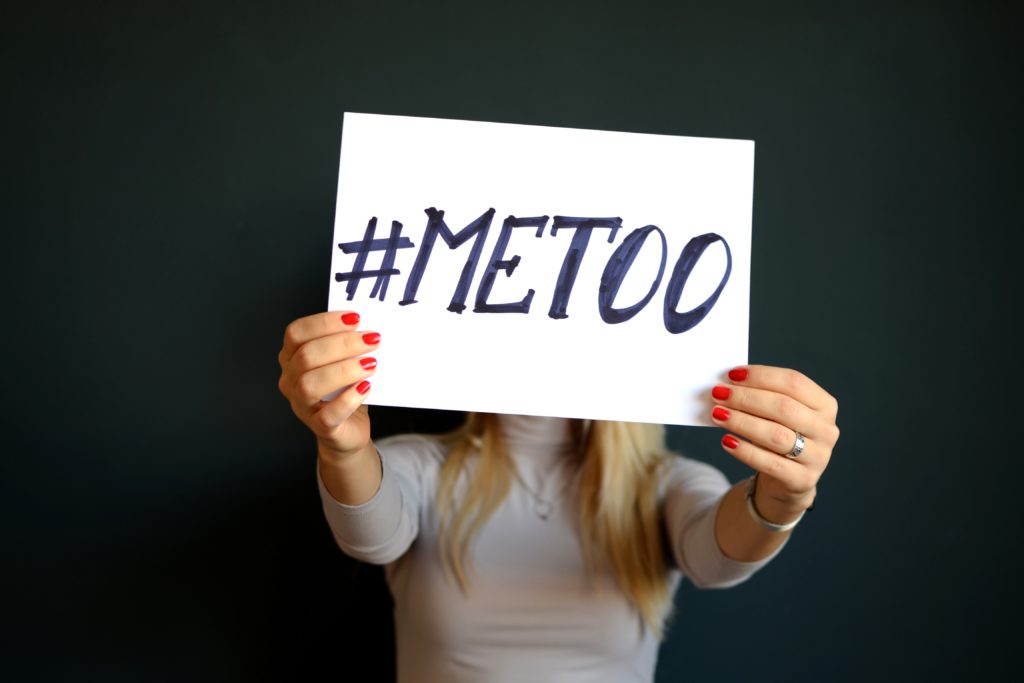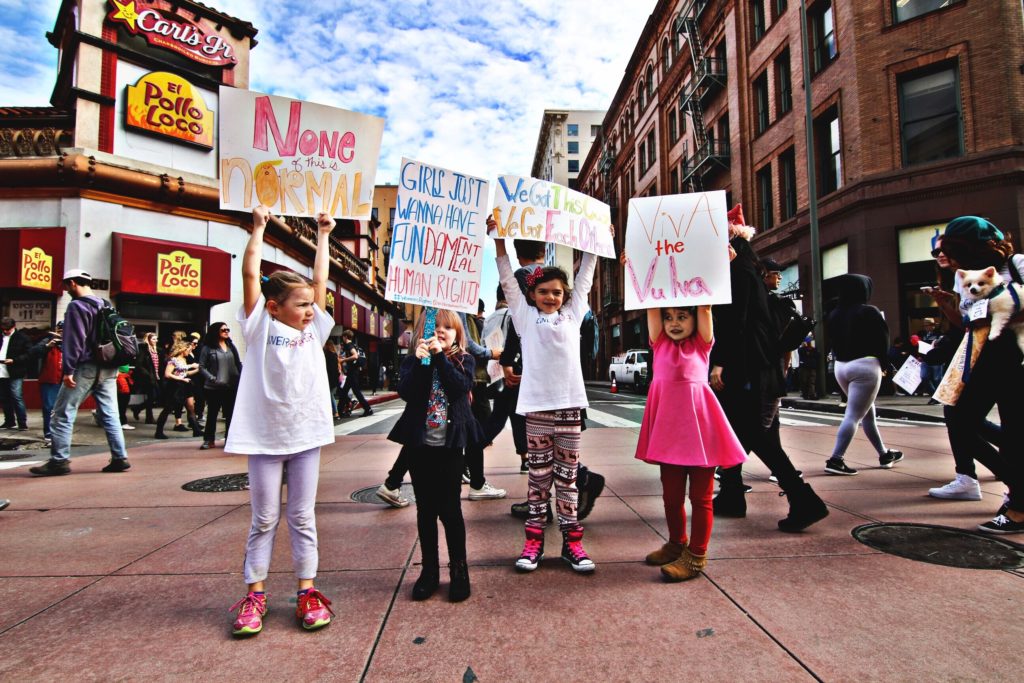Relationships July 1, 2019
Pussy power – the unstoppable force against a crime against humanity.


From early childhood education through the university level, we are told to respect each other’s personal boundaries by keeping our hands to ourselves. So why is it we’re still fighting over why reproductive rights are important?
Is there ever a time we should allow ourselves to forget about reproductive health issues that affect our everyday lives? The answer is simple: It should never become irrelevant. However, if you look and analyze our society today, it seems as if that basic life lesson no longer applies to our community as a whole.
Many people view this social issue in one of two ways – you’re either pro-choice or pro-life. But in reality, reproductive rights are a complex branch of human rights that are meant to protect all genders, races and sexual orientations.
As a young woman living in the United States in 2019, it is terrifying to know that I’m not actually in control of my own body and that my rights are being stripped away.
Let me explain.

Roe v. Wade is more than just about legalizing abortion. In fact, it’s about protecting a woman’s right to her own body.
In 1973, the United States Supreme Court ruled that it was unconstitutional for a woman to not have the right to medical decisions over her own body. As Justia explains, the right to privacy was brought up with this trial as an addendum, but people often get the idea that Roe v. Wade is only about a step in the right direction for women’s privacy.
In reality, it was also a significant step for women’s intellectual rights and the recognition that women are capable of making their own choices. Now in 2019, there are conservatives still fighting to take away this fundamental right from us.
Thus, it’s important to be aware of what has happened in history and to try and learn from it. It’s not enough to just know what happened, we should have the passion to continue fighting for it.
According to the Center of Disease Control (CDC):
After reading these statistics, sit back, and think about the alternative reasons women choose to get an abortion. Children shouldn’t be forced to take care of other children. And while there is nothing wrong with being a single mother, there is nothing wrong with not wanting to be one either. These are just small factors that people do not consider when discussing pro-choice vs. pro-life.
Concerning facts from the National Sexual Violence Resource Center:
I hope that reading these statistics scares you. If you don’t know what the person next to you has gone through, then how do you get to have a say in how she regulates her body? Keep reading!
I’ve got a question I would like to ask: If people think abortion of a clump of cells is taking away a life, then what about all the lives taken away by ejaculating into a sock? Hear me out, it’s essentially the same concept.
People are more concerned about controlling a woman’s body to “protect” the hundreds of thousands of cells that are not yet viable on their own. What about all the potential life that is sitting in an egg or sperm bank? Are those “lives” more important than a living, breathing human?
Our society seems to be okay with regulating women’s bodies and their sexual activity, so why are we not also regulating men’s bodily autonomy? The more you hear about the new laws and regulations against women, you need to continuously be aware of the opposing side. Ask the hard questions and challenge others to think about why these regulations only target one gender.
There are a lot of health factors people don’t take into consideration when arguing their side of “pro-choice.” Women don’t just get abortions because they are ‘promiscuous’ and had an unplanned pregnancy. Women get abortions when they know they cannot support another life and give the child the best life possible. Many women also get abortions to save their own lives. For example, if she has an ectopic pregnancy, that would be a reason to get an abortion.
The U.S. government, however, has decided to revoke women’s rights to protect and decide for their own bodies. When you take away safe abortions or access to reproduction clinics, you are enabling women to pursue extremely dangerous and unsanitary methods of abortion. At that point, it’s no longer just about “saving a life,” it becomes about putting women’s health and lives in danger.


Very few women want to carry the child of their rapist. Very few women want to be around and care for a constant reminder of someone who overpowered her and took advantage of her body.
Sexual assault and violence affect everyone and is more common than you might think. When discussing this aspect of reproductive rights and how it goes in tandem with the fight against sexual assault, it moves beyond a physical issue, it’s now an emotional and psychological one, too.
The Center of Reproductive Rights states that sexual assault and violence already has damaging long-term psychological affects that can alter a victims entire life. However, “When sexual assault results in a pregnancy, the harm experienced may be exponentially exacerbated, particularly, in countries with restrictive abortion laws, where such pregnancies leave women with the dire choice between carrying the pregnancy to term or undergoing a clandestine, unsafe abortion.” This may seem like common sense, but this is what needs to be brought to light.


I cannot stress this enough; education is the key to social change!
It is important to teach children about sex and sexual reproductive health. Having an open education would allow for open discussions about what sexually transmitted diseases (STDs) are, how they can be prevented and how/if they can be cured. Additionally, sex education is not only about STDs and healthy sex practices, it also educates people about the alternatives to abortion, such as adoption.
With the proper education, it is known for unplanned pregnancies to decrease and the overall sexual health of a community is improved.
Iceland is an excellent example. Iceland believes every person has the fundamental right to receive equal education. As the Iceland Ministry of Education explains, “A fundamental principle of the Icelandic educational system is that everyone should have equal opportunities to acquire an education, irrespective of sex, economic status, residential location, religion, possible handicap, and cultural or social background.”
I hope that the U.S. Government will be able to step back and realize that equal education can relive SO many social issues that our society faces.
To put it simply, reproductive rights are fundamental human rights. These apply to everybody, regardless of age, gender or race.
The only way to really bring this social change is to talk about the hard stuff and educate those around us.
Are you standing on the right side of history?